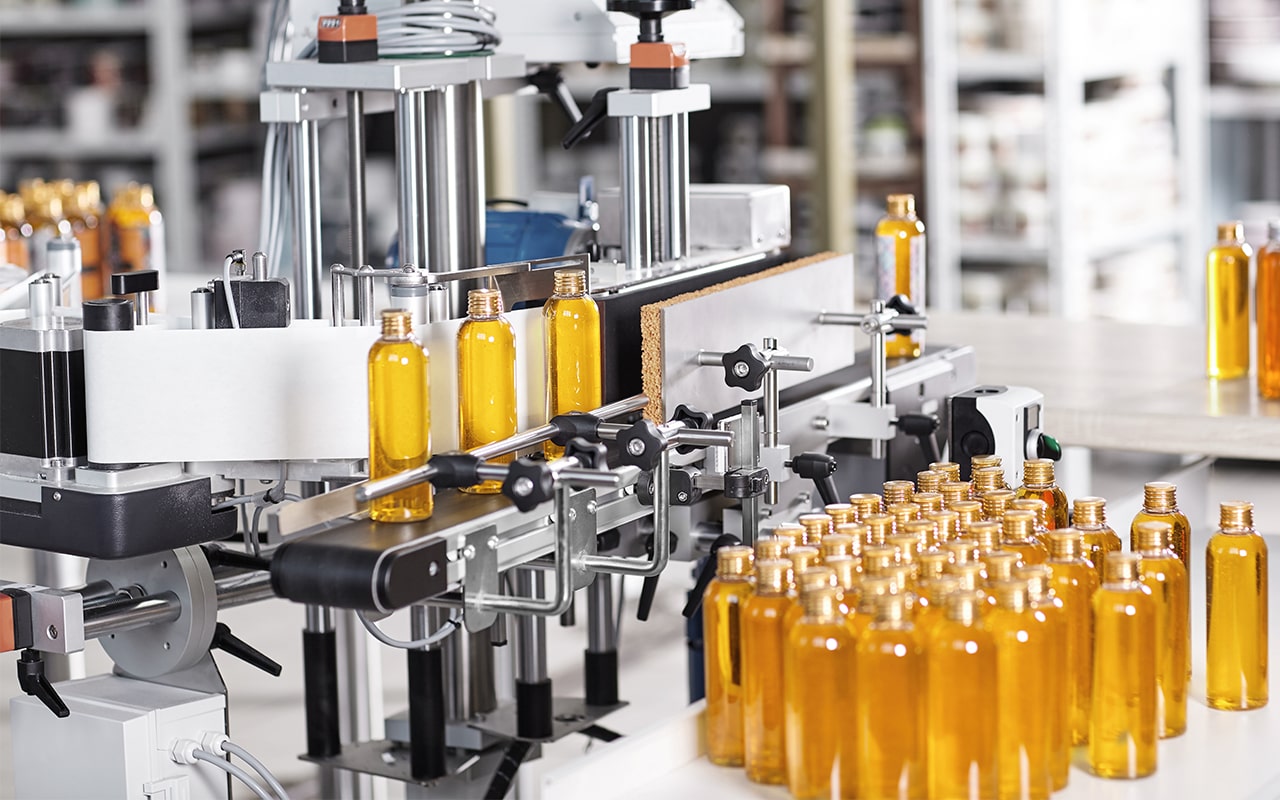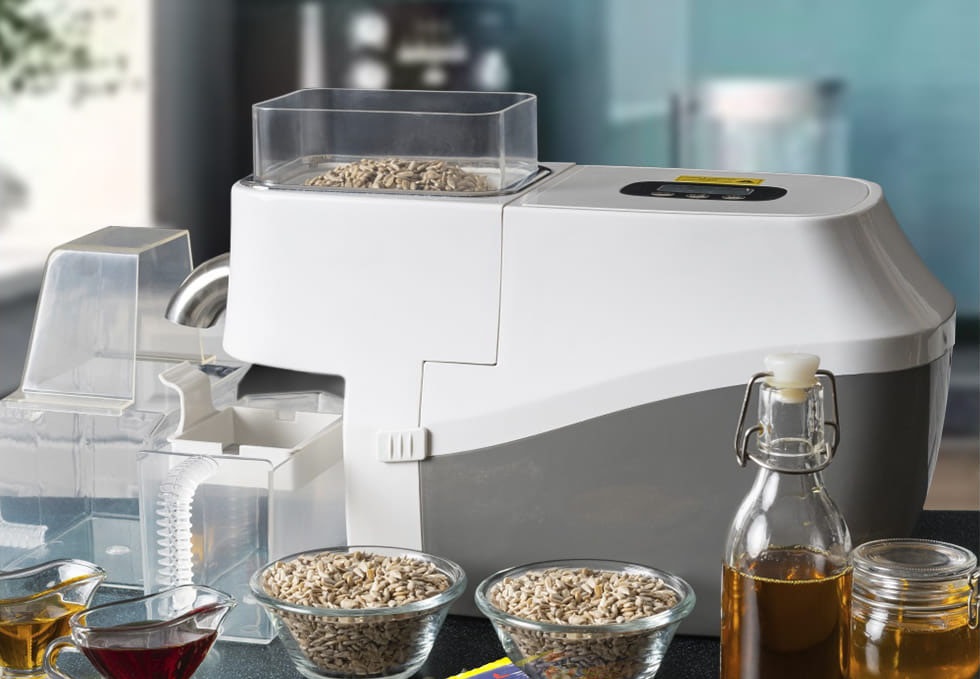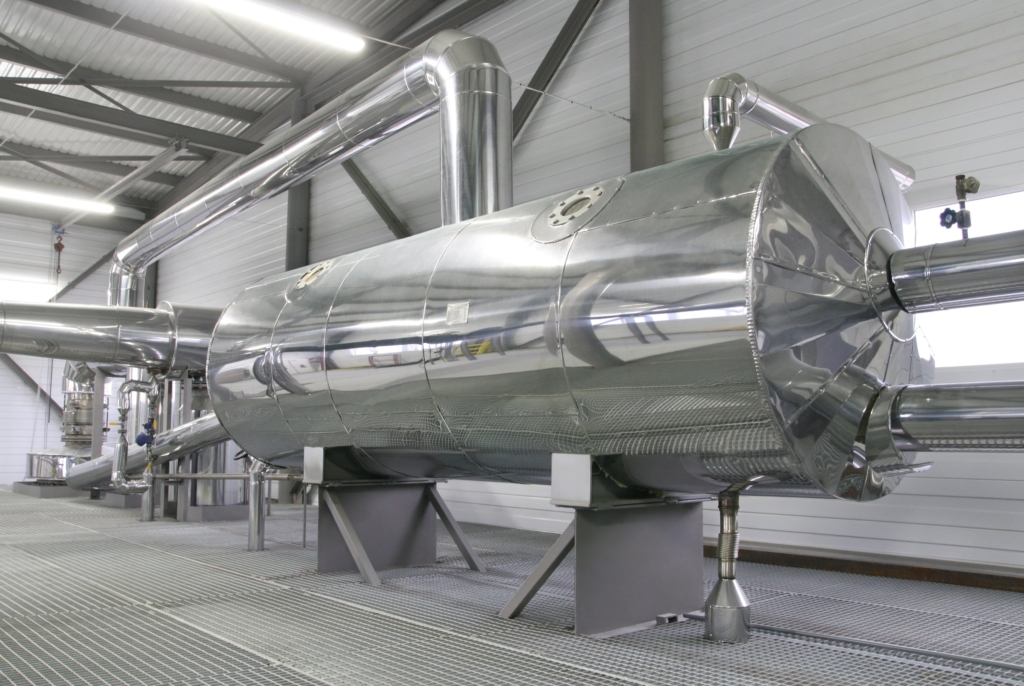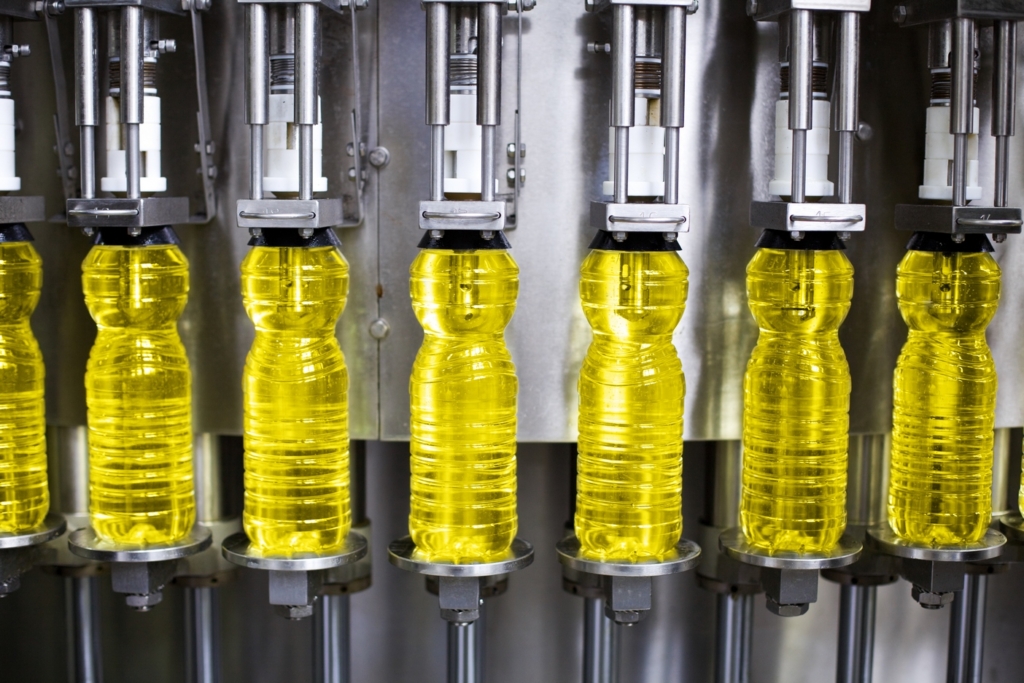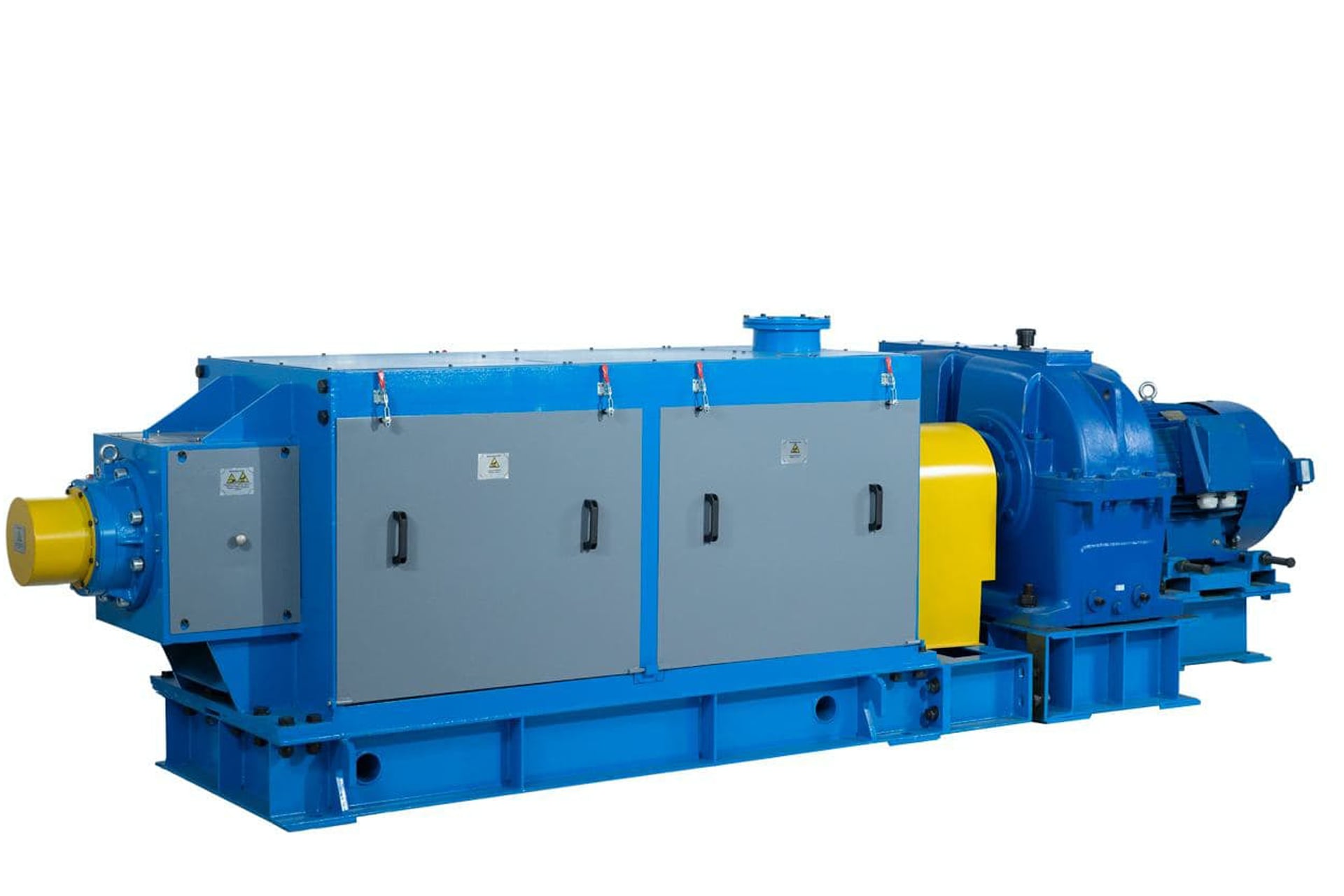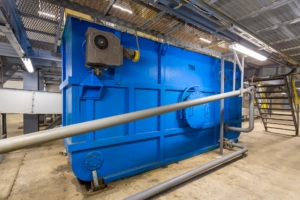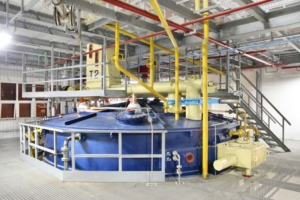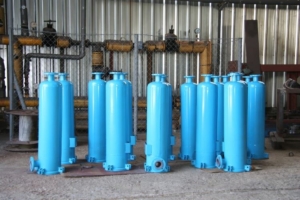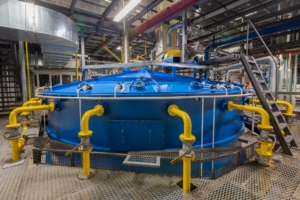What is the process of producing sunflower oil?
- 08.01.2023
- 13760
- Uncategorized
Sunflower oil is of vegetable origin. It is a golden yellow transparent liquid. Sunflower seeds contain 39-49% of oil. To extract it, 2 common technologies are used: mechanical pressing and extraction with organic solvents. But before you start extracting the oil, you need to prepare the seeds. To extend the shelf life of the oil, it is heated and further processed. This processed, or in other words refined, sunflower oil not only has a longer shelf life, but also has a higher smoke point. Unrefined oil has a characteristic flavor, while the refined product is tasteless and odorless.
The process of sunflower seed processing
Seed crushing is the first stage of oil production. The sunflower seeds must be well cleaned, and the degree of contamination with husks should not exceed 2%. The raw material is fed to the preparation area, where the seeds are hulled. The further process and choice of equipment depends on the chosen production method and the final product – refined or unrefined oil.
Pressing (production) of sunflower oil
Mechanical pressing is the most environmentally friendly way to produce oil. The product retains most of its minerals and vitamins. This method is more commonly used to produce unrefined oil. However, there is a significant drawback – the method’s low productivity, which is 30% on average. There are 2 methods of oil pressing:
- single-stage
- double-stage pressing.
Single-stage pressing is carried out on a line consisting of a rolling machine, a fryer and an oil press. After cleaning, the seeds are fed to the rolling machine for crushing. Then the oilcake is heated in the roaster and fed to the screw oil press, where it is pressed. The residual oil content of the oilcake is 18-22%.
The double-stage pressing process is similar. The crushed oilcake reaches the required moisture content and temperature in the roaster and is fed to the pre-press. The oil is pumped into a storage tank. After pre-pressing, the cake is fed to the roaster for repeated moisture and heat treatment before the final pressing in the press. After 2 stages of pressing, the oil content of the cake is 8-10%. After the pressing process, the oil is purified on primary purification lines. Sludge traps and filters are used in the process.
Solvent extraction of sunflower oil
Solvent extraction allows to obtain up to 99% of the oil contained in sunflower seeds. It is an economical and popular way to produce vegetable oil. Before extraction, the cake is sent to a press, just as in the case of pressed oil production. This simplifies the further extraction process. The extraction process requires a solvent, which is usually gasoline grades A, B, hexane or naphtha. Extraction can be performed in 3 ways:
- Extraction by immersion of the raw material. The material, which has been previously pressed, is fed into the extractor’s feeder. At the same time, the solvent is fed into the extraction column. The liquids move in opposite directions and combine. This creates a mixture called the miscella. The speed of extraction depends on the temperature and humidity of the raw material, as well as pretreatment. In the subsequent process, the solvent is removed in evaporators.
- Extraction by step solvent irrigation. In this method, only the solvent moves, which allows to obtain a concentrated local content with a minimum percentage of impurities. After the solids are removed, the miscella is settled and filtered. Extraction by this method takes longer.
- Mixed method extraction. This method has 2 stages of extraction. The first step is the extraction by immersion. At this stage, the rate of oil transfer to the residue increases. The second step is the extraction by step irrigation, after which the miscella is settled and filtered. This process completes the extraction of vegetable fat from the solid material.
Extraction is only used to produce a refined product, as the refining process completely removes solvent traces as well as flavors and odors.
Sunflower oil refining
Refining is carried out to improve the oil’s organoleptic characteristics: color, taste, odor and stability. The entire refining process removes non-mechanical impurities such as free fatty acids, odorants and phosphatides.
The refining process includes several stages that take place on a complex refining and deodorization line. It consists of 4 sections.
- Degumming and neutralization. During degumming process, protein and phosphorus-containing substances, hydrophilic impurities are removed from the oil. Free fatty acids are neutralized, soap is washed out and soapstock is formed.
- Bleaching is the process of treating oil with adsorbents of organic origin, the main purpose of which is to remove peroxide compounds and phosphorus-containing substances. After bleaching, the color becomes light yellow.
- Winterization (freezing). At this stage, the wax and wax-like substances in the oil crystallize. During the freezing process, the crystals are removed from the oil.
- Deodorization. This section is used to remove odorants, which are substances responsible for the flavor and odor of the oil. They are removed by hot dry steam under vacuum. The degree of purification depends on the duration of the process.
The complex refining and deodorization line includes all the necessary equipment for high-quality product purification before packaging.
Packaging of sunflower oil
The final stage in the production of sunflower oil is packaging.
Filling lines are used for this purpose. The equipment may have differences:
- two-unit machines consist of a filling machine and a capping machine;
- three-unit machines include filling, capping and rinsing machines.
Modern filling equipment is equipped with a precise dispenser with an error of +/- 0.5%. Powerful pumps allow the oil stored in tanks at a distance of several meters to be supplied to the filling line. This allows the process to be automated.
TAN manufactures processing lines for the oil and fat industry. We can provide engineering and design development for plants of any scale.

